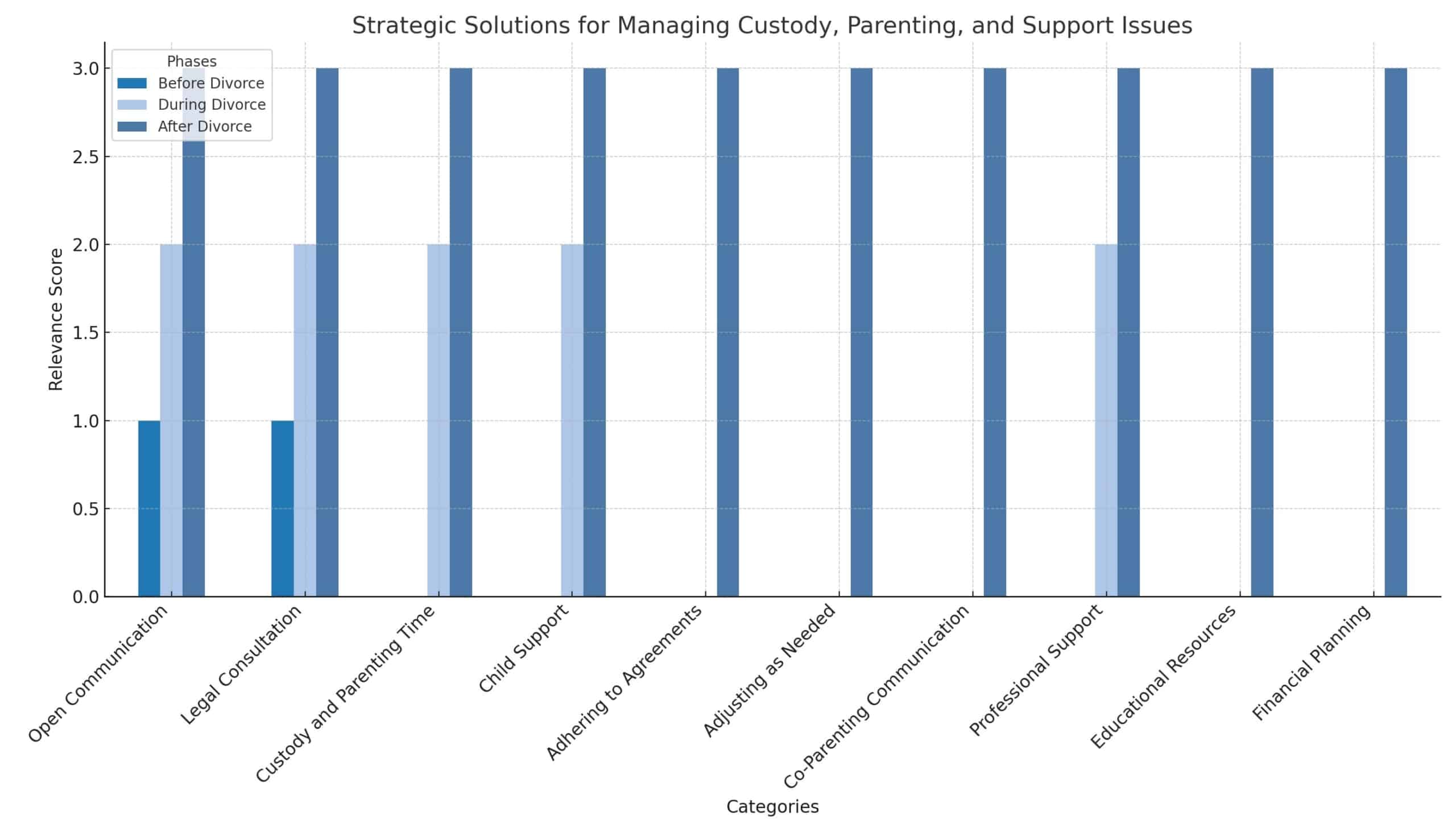FINANCIAL PLANNING
Divorce Planning
Child Custody, Parenting Time, and Child Support: Strategies for Families in Transition
Published on March 30, 2024
FINANCIAL PLANNING: Divorce Planning
Child Custody, Parenting Time, and Child Support: Strategies for Families in Transition
Published on March 30, 2024
The dynamics of divorce extend beyond the separating couple, deeply affecting the lives of any children involved. At Global Advisers, we recognize the complexities surrounding child custody, parenting time, and child support. This guide seeks to elucidate these challenges and propose strategies to manage them before, during, and after a divorce, ensuring the well-being of children and the fairness and compliance of both parents.
Before Divorce: Laying the Groundwork
Anticipating and planning for the implications of divorce on children can mitigate confusion and emotional stress, laying a solid foundation for the transitions ahead.
- Open Communication: Discussing the forthcoming changes with children, in an age-appropriate manner, can help prepare them emotionally, ensuring they feel secure and loved.
- Legal Consultation: Early consultation with a family law attorney can provide clarity on legal rights and responsibilities regarding custody, parenting time, and child support, guiding initial preparations.
During Divorce: Establishing Agreements
The divorce process requires negotiating terms that prioritize children’s needs while balancing the rights and responsibilities of each parent.
- Custody and Parenting Time: Negotiating custody (legal and physical) and parenting time (visitation) should focus on the best interests of the child, considering their needs, schedules, and preferences.
- Child Support: Establishing child support involves understanding state guidelines and accurately representing both parents’ financial situations to ensure fair and sufficient support for the child’s needs.
After Divorce: Adjusting to New Norms
Post-divorce, families must adapt to new routines and legal agreements, maintaining flexibility and open lines of communication.
- Adhering to Agreements: Faithfully following custody, parenting time, and child support agreements is crucial. Consistency provides stability for children and upholds legal obligations.
- Adjusting as Needed: Recognizing that children’s needs evolve, parents should be prepared to revisit and adjust agreements as necessary, through legal channels if required.
- Co-Parenting Communication: Effective co-parenting requires communication and cooperation. Tools and services designed to facilitate scheduling, messaging, and expense tracking can help manage shared parenting responsibilities.

This chart illustrating the strategic solutions for managing custody, parenting, and support issues throughout the different phases of a divorce. Each category’s relevance is scored subjectively based on its importance before, during, and after divorce, reflecting planning, negotiation, and adaptation stages. This visualization helps to identify the focus areas at each stage of the process, from laying the groundwork and establishing agreements to adjusting to new norms and ensuring children’s well-being.
Strategic Solutions for Managing Custody, Parenting, and Support Issues
Successfully navigating child-related issues in the context of divorce involves strategic planning, a focus on children’s well-being, and adherence to legal responsibilities.
- Professional Support: Engaging family law professionals and mediators can facilitate the negotiation of fair, child-focused agreements during the divorce process.
- Educational Resources: Participating in parenting education programs can equip parents with skills to support their children through the transition and beyond, fostering a positive co-parenting relationship.
- Financial Planning: Consulting with financial advisors knowledgeable in divorce can ensure child support payments are manageable and used effectively for the child’s benefit, considering future expenses like education and healthcare.
Child custody, parenting time, and child support issues are central to the divorce process, requiring careful consideration and compassionate handling to support children’s well-being and ensure fairness and legal compliance for all family members. At Global Advisers, we are dedicated to guiding families through these challenging times with professional advice and strategic planning. By prioritizing children’s needs, maintaining open communication, and utilizing available resources and support, families can navigate the complexities of divorce, laying the groundwork for a stable and positive future.
This article is being provided for educational purposes only. The information contained in this article does not constitute a recommendation from any Global Advisers entity to the recipient, and Global Advisers is not providing any financial, economic, legal, investment, accounting, or tax advice through this article or to its recipient. Neither Global Advisers nor any of its affiliates makes any representation or warranty, express or implied, as to the accuracy or completeness of the statements or any information contained in this article and any liability therefore (including in respect of direct, indirect, or consequential loss or damage) is expressly disclaimed.